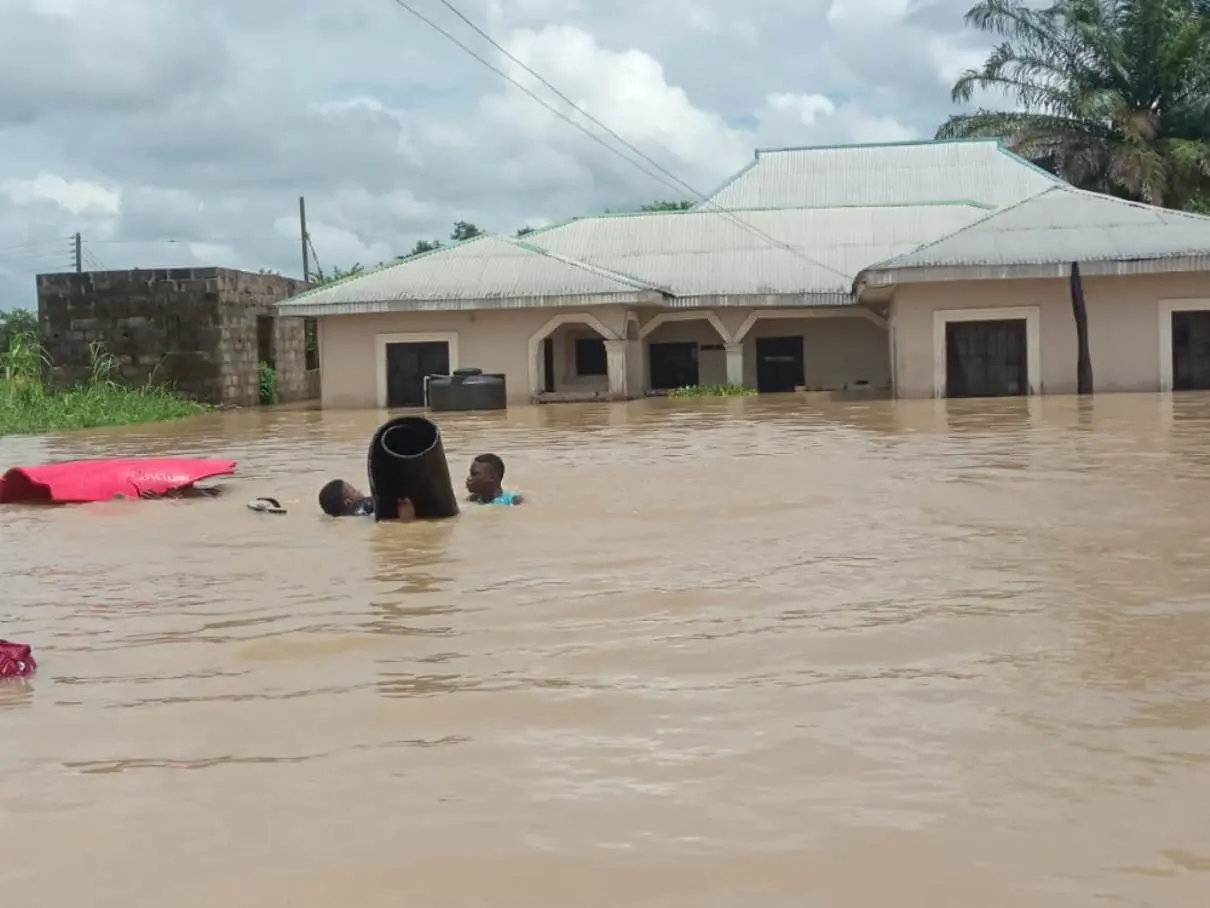Severe floods in Niger Republic following months of heavy downpours have left no fewer than 159 people dead, authorities have confirmed, marking one of the most horrific rainy seasons in history for a normally arid state.
Africa Today News, New York reports that the landlocked Sahel state’s annual rainy season typically runs between June and August or September.
However, in recent years, rainfall has become more intensive, accelerating the risk of deadly flooding in shantytowns.
Official figures which were made public to reporters show that so far this year, 121 people have died when their houses collapsed and another 38 have drowned.
Powerful rains have destroyed or damaged tens of thousands of houses, plus classrooms, medical centres, granaries and cattle herds.
Read Also: Gridlock, Residents Cry Out As Floods Hit Lagos, Kill Two
Some 225,539 people have been affected and nearly 200 more injured, the figures showed.
The new toll is up from the latest update of 103 dead by early September.
The meteorological service has warned heavy rain will continue until the end of the month.
The floods have combined with regional droughts and jihadist insurgencies that have badly hit harvests.
Niger is going through a serious food crisis with health monitors warning more than 4.4 million people are facing “severe” food insecurity — a fifth of the population.
Meanwhile, the Nigerian Meteorological Agency (NiMet) has sent out warnings to Nigerians of possible flooding in some states in September calling on them to take precautionary measures.
The General Manager, Public Relations, NiMet, Muntari Yusuf Ibrahim, in a statement which was made available to Africa Today News, New York on Monday disclosed that there may be possible flooding in some states that have experienced high amounts of rainfall in July and August this year.
‘Based on the rainfall distribution and rainfall amounts recorded in the country during the month of August 2022, the Nigerian Meteorological Agency, NiMet, has warned of possible flooding in some states that have experienced high amounts of rainfall in July and August this year.
‘The saturated state of the soil moisture across the country in the month of July and heavy rainfall recorded in August may put most places to experience varying degrees of flooding activities ranging from high, medium, low and flash flood for the month of September.
The report further revealed that “Sokoto, Zamfara, Kaduna, Jigawa, Bauchi, Kano, Borno, Gombe and Nasarawa states recorded over 300mm, which represent over 40% of Long – term Normal of those places in one month.

